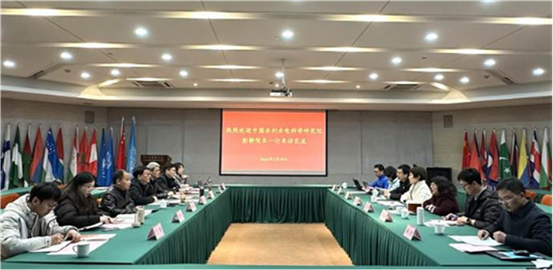On 29 February, Prof. Peng Jing,
President of IWHR and Director-General of IRTCES, and the delegation visited
the Hangzhou International Centre on Small Hydropower (ICSHP) to discuss and
exchange views on international exchanges and cooperation in water conservancy
and hydropower, as well as the internationalization of standards. Prof. Xu
Jincai, Director of the International Centre for Small Hydropower, met with
them, and the responsible members of the Disaster Reduction Centre of IWHR,
IRTCES, the International Division, the Platform Division, the Standard and
Measurement Centre, and the Institute of Water Resources History, among other
departments, attended the meeting.
Prof. Peng Jing stated that as an
international organization headquartered in China, the International Centre on
Small Hydropower (ICSHP) has played an important role in supporting China’s
achievements in water conservancy and hydropower, as well as in helping small
hydropower enterprises “go global.” It has accumulated rich experience and
established a strong network of supporters. Both sides have a wide range of
areas for cooperation and complementary advantages, and they look forward to
working together in the future. In international exchanges and cooperation in
water conservancy and hydropower, the internationalization of standards, the
application of remote sensing technology in small hydropower construction and
operation under the “Belt and Road” initiative, and the provision of water
knowledge and scientific assistance will further expand the space for practical
cooperation, making greater contributions to the new stage of high-quality
development in water conservancy.
Prof. Xu Jincai provided a detailed
introduction to the construction and development history of the International
Centre for Small Hydropower, the organization and layout of the base, the
structure and operation of ISO Technical Committee TC339, and the operation of
the United Nations Industrial Development Organization. He discussed the
significant progress made by the International Centre for Small Hydropower in
recent years in supporting the green development of small hydropower, promoting
international exchanges and cooperation in small hydropower technology, and
particularly in promoting China’s small hydropower standards globally. He
expressed his expectation that IWHR’s achievements in water conservancy and
hydropower scientific research, international exchanges and cooperation, and
standard construction will provide strong support for the green development of
global small hydropower and the building of a community with a shared future
for mankind.


